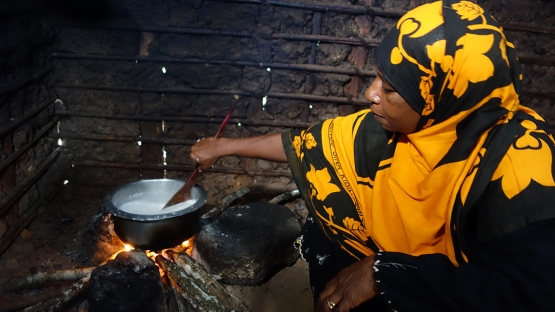“Helping African Member States to achieve their development goals through the use of peaceful nuclear technology is a high priority for the IAEA,” explained Yukiya Amano, Director General of the IAEA, during a speech marking Africa Day 2016. This offer of support and collaboration will be shared in person by the Director General with dozens of African leaders and decision-makers later this month at the sixth Tokyo International Conference on African Development (TICAD), whose aim is to encourage and coordinate global action in support of economic development in the region.
The African region is widely considered the final economic frontier, brimming with opportunities to collaborate, mature nascent markets, and guarantee inclusive and sustainable development. Today, a well-timed constellation of factors—from escalating birth rates to a rising incidence of international trade and capital flows—has quickened the pace of Africa’s economic pulse. Indeed, seven of the ten fastest-growing economies are in the African region, reflecting the new commercial vibrancy that characterizes the continent. This year, dozens of Heads-of-State will attend the Tokyo International Conference on African Development from 27—28 August, in addition to approximately 4,000 other government representatives, delegates and development experts.
A long-time and steadfast supporter of African development, the Government of Japan launched the first TICAD event in 1993. In the intervening 20 years, Japan has helped to redirect global attention to African nations with the aim of reducing endemic disease and conflict, alleviating poverty, and providing economic planning in coordination with the United Nations and other international organizations. TICAD has always been organized in the spirit of African ownership, meaning that the participating African states should determine the priorities and overall direction of the conference.
Originally held every five years, permitting decision-makers to take stock of the progress achieved since the previous meeting, TICAD VI is taking place only three years after the 2013 conference—an indication of the continent’s accelerated development and growth. Moreover, the sixth TICAD is notable for its location: Nairobi, Kenya. This is the first time that a TICAD has been held outside Tokyo or Yokohama.
Both the Director General and the Director of the IAEA’s Division for Africa, Shaukat Abdulrazak, will attend the two-day conference, drawing the attention of national counterparts to the economic and social dividends to be reaped as a result of engagement with nuclear science and technology. Among the events he will attend, the Director General is expected to speak at an event organized by the African First Ladies, who have united to help tackle the growing threat posed by women’s cancers—notably breast and cervical cancer—in the region. TICAD’s 4,000 participants will also have the opportunity to visit an IAEA technical cooperation exhibition, designed to develop a strong link between pressing development challenges and nuclear solutions in the public’s imagination.
The IAEA’s role in African development is well-established. Across decades and in each sub-region of the African continent, the Agency has helped Member States to address and overcome age-old challenges—such as food insecurity, water management, and soil erosion—as well as newer ones that include invasive pests, climate change, and vector-borne diseases like Zika virus and Ebola virus disease. TICAD VI offers the IAEA an opportunity to raise awareness of the contribution of nuclear sciences to development, and will help to raise the profile of IAEA efforts in the region.



